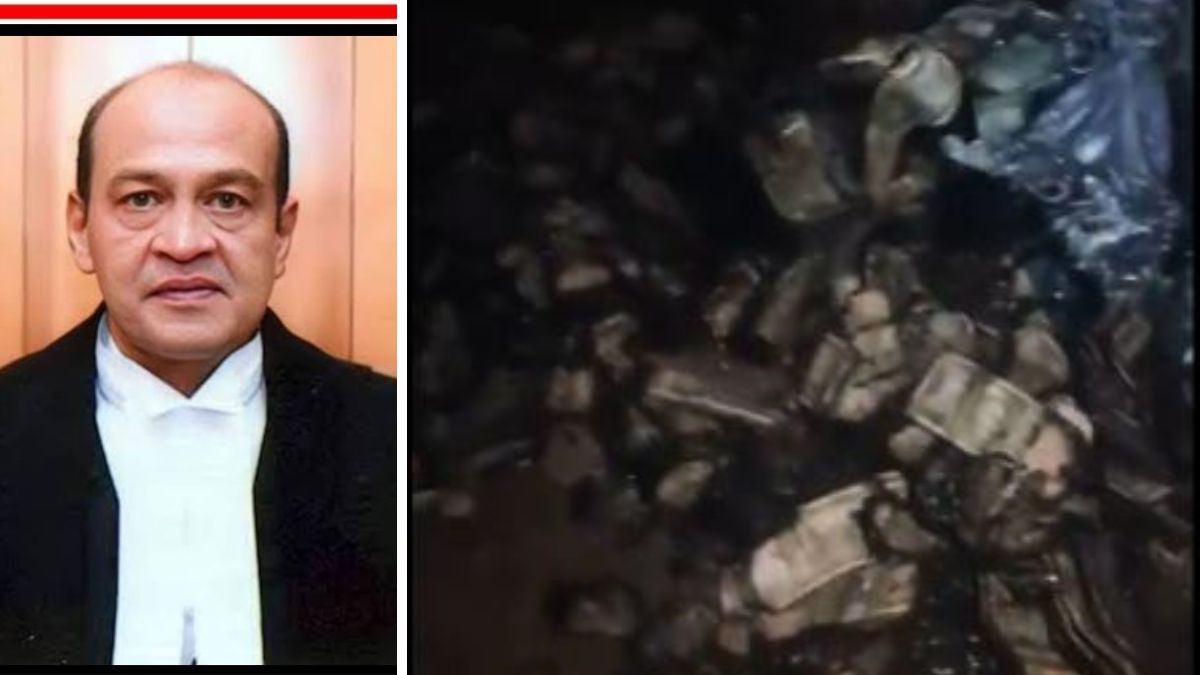Supreme Court grills Justice Yashwant Varma on in-house committee participation amid constitutional challenge

On Monday, when the Supreme Court heard the case filed by sitting Allahabad High Court Judge Justice Yashwant Varma in open court, it grilled him over his challenge to a judicial inquiry panel's findings—not only engaging with a legal question, but rather laying bare a constitutional crisis of confidence and procedure.
A bench of Justices Dipankar Datta and A.G. Masih drilled Senior Advocate Kapil Sibal with pointed questions such as this: “Why didn’t your client challenge the committee’s constitution earlier?”
ALSO READ | Cash-at-home case: Constitutional questions arise as SC prepares to hear Justice Yashwant Varma's petition
It all began with a fire on March 14 at Justice Yashwant Varma’s official residence in Delhi. What should have been a routine emergency response turned scandalous when firefighters allegedly found bundles of cash amid the blaze.
This incident prompted the then Chief Justice of India, Sanjiv Khanna, to initiate an in-house probe under the Supreme Court’s internal mechanism to examine judicial misconduct.
A three-member committee headed by Punjab and Haryana Chief Justice Sheel Nagu was constituted, and delivered its report on May 3, which reportedly indicted Justice Varma. Acting on that report, CJI Sanjiv Khanna recommended Justice Varma’s removal to the President of India.
Since then, the judge has returned to his parent High Court in Allahabad but has been stripped of judicial work. What followed was a stunning and rare challenge—filed by Justice Varma in the Supreme Court against the very process that examined him—raising issues of constitutional propriety, procedural fairness, and judicial accountability.
Varma questions the in-house procedure
Senior advocate Kapil Sibal argued that the in-house procedure was triggered suo motu by the CJI without any formal written complaint, in violation of precedent and established procedure.
ALSO READ | Did Jagdeep Dhankhar's resignation have anything to do with Justice Varma's impeachment row?
Sibal added that Varma was not made aware of the procedure the committee adopted, nor was he given a chance to respond to the evidence presented.
Sibal added that by issuing a press release about the inquiry, the Supreme Court subjected him to an unprecedented media trial, prejudicing both public opinion and his standing.
“If even Parliament cannot discuss a judge’s conduct until misbehaviour is proven, how can such an inquiry report be leaked to the public domain, and used to influence public discourse?” Sibal questioned.
Bench flags delays in challenging inquiry panel
The bench, however, struck a tone of skepticism. “Why did you not challenge the committee when it was constituted? Why now?” pointed out Justice Datta.
ALSO READ | OPINION | The Judiciary’s crisis of credibility
The bench also pointed out procedural flaws in the petition naming the Registrar General instead of the Secretary General of the Supreme Court, and not placing the committee report on record.
At this, Kapil Sibal decalred that a man is “convicted by the media before he even has a chance to speak”, to which Justice Datta responded that it was “an incident of misbehaviour” nevertheless, questioning what else could have been done.
What lies ahead?
The Supreme Court has deferred the hearing to July 30 and directed Justice Varma to place the copy of the in-house inquiry committee on record.
ALSO READ | Cash-at-home case: Justice Varma moving SC could reshape judicial accountability
However, even before any legal outcome, the Varma case has already set a precedent: one where a sitting judge has taken the highest court to task over the process used to investigate himself. It reopens the debate on how India should handle judicial accountability, and whether the current internal mechanisms offer enough safeguards to those they judge.
The Supreme Court’s ongoing hearing in Justice Yashwant Varma’s case comes at a critical intersection of judicial accountability and constitutional process.
This legal battle unfolds even as Parliament awaits possible impeachment proceedings. Varma’s case not only tests the internal accountability mechanisms of the judiciary but also raises fundamental questions about due process, media trials, and the threshold for removing a sitting judge in India’s constitutional scheme.
India